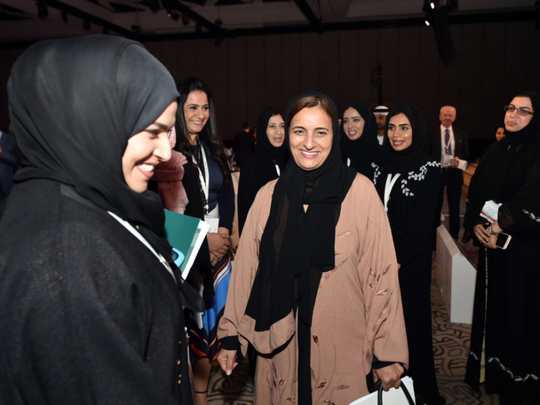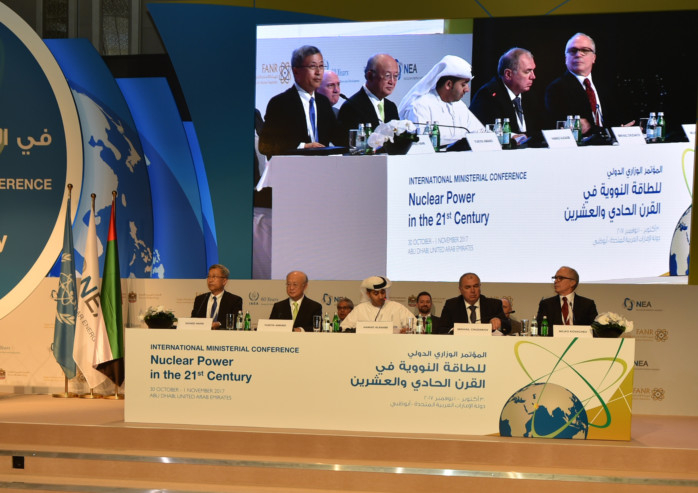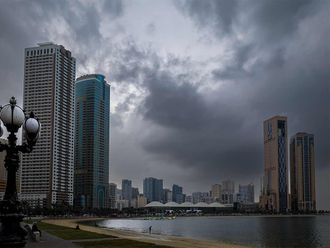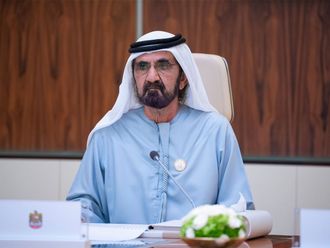
Abu Dhabi: When it comes to the UAE’s nuclear sector, women continue to make major strides, making up 10 per cent of the employees working at the Barakah nuclear power plant site and more than 20 per cent of the total workforce in the nuclear industry, said a senior UAE female official on the final day of a an international conference on nuclear energy in Abu Dhabi.
“From the beginning of the UAE’s nuclear programme, we emphasised strongly the need to bring more women into the nuclear industry, and into what is generally considered the male-dominated sector around the world,” Shaikha Lubna Al Qasimi, Vice-Chairwoman, Emirates Nuclear Energy Corporation (Enec) Board of Directors, said at the International Ministerial Conference on Nuclear Power.
“Twenty-three per cent of professionals working at Enec are women, at the Barakah nuclear energy plant … about 10 per cent of the employees are female, this is a significant achievement and we will continue to support our women who want to join the [nuclear] sector,” she added.
“Today there are 61 fully qualified female nuclear engineers employed by Enec and Nawah Energy Company — 20 of these [women] occupy the position of senior reactor operator, [and] reactor operator and licence operator,” she said.
Al Qasimi also highlighted how the number of women was also going up in educational programmes for the nuclear industry, pointing to a positive trend for women working in the nuclear energy sector.
“As part of the ongoing educational efforts, almost 30 per cent of students in our educational programme are female, more specifically, 30 per cent of students enrolled in the high diploma in nuclear technology at Abu Dhabi Polytechnic are women,” she said.
Al Qasimi said it was important to support young women in the field of science and technology, noting her own experience.
“I was in a similar position, from a young age I was interested in science, for me maths, physics and science made sense, [and] they helped me understand the world.
“When I was going to university, I wanted to work with computers while everyone wanted me to be a doctor. This was in 1970s when computers were still something new and upcoming. At the end, I managed to convince my family to pursue a career with computers … With their support, I graduated with a bachelor degree in computer science from California State University, Chico,” she said.
Al Qasimi also spoke on the diversity of the UAE’s nuclear industry workforce, saying it was creating a precedence for others to follow.
“The UAE’s peaceful nuclear energy programme is one of the most diverse [and] perhaps the most multinational and multicultural in the world, with over 60 nationalities involved.
“We celebrate this diversity and continue to promote understanding, diversity, and acceptance. I truly believe that this is a unique situation for the global nuclear industry that has made the UAE a role model for others to look to when they aim for success,” she added.
Challenges remain
On his part, Hamad Al Kaabi, Ambassador of the UAE to Austria and Permanent Representative to the International Atomic Energy Agency (IAEA), in his closing remarks at the conference, said that pursuing nuclear energy was necessary to tackle climate change.
“The conference recognised that nuclear power remains an important option for many countries to improve energy security, reduce the impact of volatile fossil fuel prices and mitigate the effects of climate change and air pollution.
“Substantial growth in nuclear electricity generation by 2050 will be required to limit the average global temperature increase to two degree Celsius,” he added.
Al Kaabi did however acknowledge that challenges remained, with nuclear power still facing issues of investment around the world, and many nuclear power plants being shut down.
“A number of [nuclear] plants are being shut down in some countries before the end of their safe operational lifetimes for both political and economic reasons,” he said.
“Investors need clarity and certainty from policymakers … Governments can provide clear and consistent policy support for existing and new nuclear power capacity, including, for example, by incorporating nuclear power into clean energy incentive schemes and encouraging its development,” he added.












